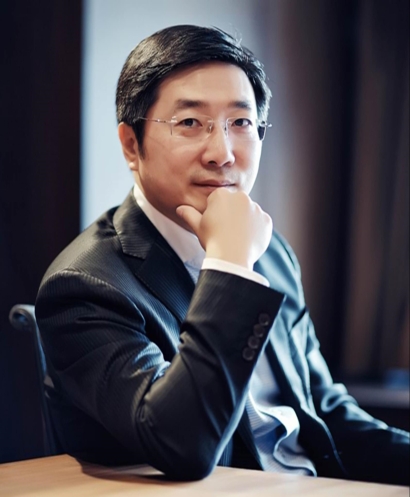Chinese Expert Offers 5 Keys to Success in Chinese Market
03 December, 2019

A leading Chinese expert has suggested that foreign businesses should target second-tier Chinese cities that are not immediately on their radar if they want to do successful business in the world's most populous country.
Prof. Teng Bingsheng of China's Cheung Kong Graduate School of Business is recognized in the U.S. and China as a leading expert. Prior to joining CKGSB in 2016, he was a professor of strategic management at George Washington University.
Teng earned a Ph.D. in strategic management from the City University of New York and as a consultant has worked closely with China Mobile, Baidu, Tencent and other leading companies.
CKGSB is a leading business school in China founded in 2002 with the support of the Li Ka Shing Foundation. The school has campuses in Beijing, Shanghai, and Shenzhen and offices in Hong Kong, London and New York.
Teng recently gave a lecture in Beijing that was part of CKGSB's "Cutting-Edge Insights from China" program, in which 20 senior officials from multinational companies, diplomatic corp, and government organizations from 12 countries including Brazil, Britain, Canada, and Malaysia participated to gain insight into policies and innovations that are unfolding in China.
Titled "China Strategy of Foreign Companies," it made some important points on how to do business there. Here are some key takeaway points.
Cost
Given rising labor costs in China, Teng recounted a story of a Korean entrepreneur he had met a couple months ago. The executive, who had been running an electronic parts company in Shanghai, moved his company to Vietnam because of the rising costs.
Since labor costs in Vietnam are half that of what they are in China, it is cheaper to manufacture them there and ship them to Shenzhen, the Chinese equivalent of Silicon Valley. But for companies exporting to the U.S. market, U.S. tariffs against China pose as a major variable cost.
Increasingly, companies with factories in China's major coastal cities are considering relocating their factories inland, such as Guizhou and Sichuan provinces, where labor costs are lower. However, they must weigh in the considerable cost of transporting their products. In a country as vast as China, they can be high.
Region
China's top-tier cities, such as Beijing, Shanghai, Shenzhen and Guangzhou, have long served as the hubs for global multinationals as they represent a combined 1.4 billion population. For this reason, targeting second-tier cities can be an excellent alternative as they offer untapped growth opportunities. Regional city governments also actively seek to attract investment with incentives such as tax breaks.
For example, Want Want Holdings, the No.1 confectionery company in Taiwan, built a factory in Changsha, the capital of Hunan province, to enter the Chinese market. The decision paid dividends thanks to enormous support from the local government.
Regulation
The direction of the Chinese government's regulations are not easy to predict. As in the case of Didi, China's Uber, some companies are permitted to conduct business freely but then regulated when problems emerge. The principle of "permit-first, then regulate" is a predominant approach by the Chinese government.
The Chinese government tries to avoid monopolies as well as excessive competition. Teng said three is the magic number in a range of industries such as the major national airlines (Air China, China Southern Airlines, China Eastern), telecom carriers (China Mobile, China Unicom, China Telecom), and major state-run energy companies (Sinopect, PetroChina, CNOOC).
Joint ventures between foreign and Chinese companies are relatively free from antitrust regulations because the Chinese government considers them a vehicle for Chinese companies to learn and develop.
Localization
One of the most impressive case studies on localization is KFC, which offers everyday breakfast staples such as Youtiao, or deep fried breadsticks, and rice congee on its breakfast menu. The move was instrumental in positioning KFC as a "local" fast food chain in China. As of August 2018, KFC commanded a 24-percent market share in China's fast food sector, far ahead of rival McDonald's' 13 percent.
To be successful in localization, companies need to be able to capture the small behaviors that dictate the everyday lives of the locals. BMW and Mercedes-Benz created, exclusively for China, the long wheelbase 5-series and E-Class respectively, as they took into consideration that their customers in China have a propensity to prefer chauffeurs and thus require extra legroom in the passenger seat.
Emotional Value
The Chinese, a tea-drinking nation for thousands of years, began to embrace coffee only after Starbucks entered the country 20 years ago. Starbucks opened its first shop in Beijing in 1999 and now has about 4,000 outlets in China.
"It is difficult to explain the economic principles behind a woman who earns a monthly salary of 3,000 yuan enjoying a 30 yuan cup of Starbucks coffee," Teng said. But he added that once such outlets become a fixture in the media, "urban wage earners feel as though they have become part of the mainstream when drinking Starbucks coffee."
"When the Chinese are enthralled by something new, a big change occurs in the enormously large market," he added, which is why "emotional value" is so important.
Source:
